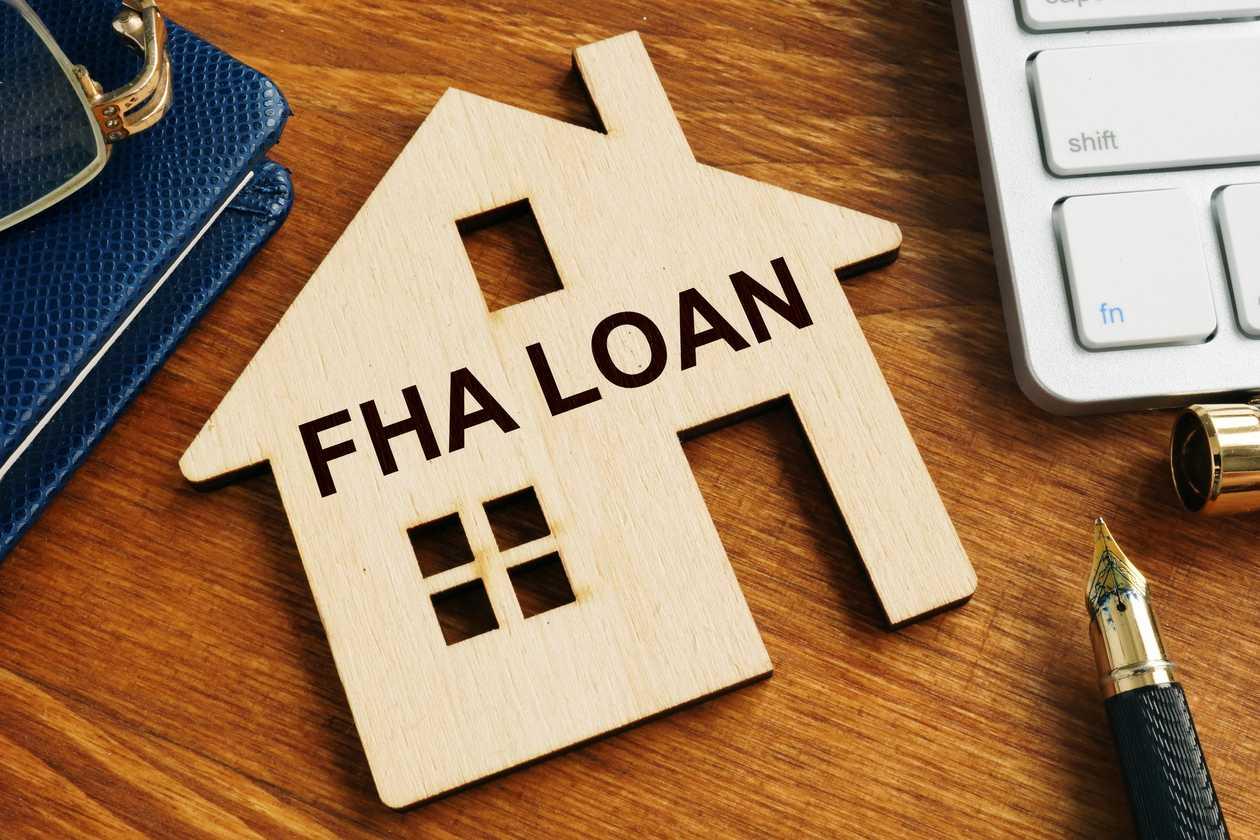FHA loan requirements are generally more flexible than what you’ll find with other types of mortgages. If you have a lower credit score, minimal savings or a higher debt load, this option can offer you a better chance of qualifying for a home loan.
What is an FHA loan and how does it work?
An FHA loan is insured by the Federal Housing Administration (FHA), which is overseen by the U.S. Department of Housing and Urban Development (HUD). This government-backed mortgage product is designed for low- to moderate-income borrowers, and comes with lower minimum credit score and down payment requirements.
Compared to conventional loans, FHA loans also have more relaxed underwriting standards, including a higher allowable debt-to-income (DTI) ratio and increased flexibility if you’ve had financial difficulties like a bankruptcy in the past.
Types of FHA loans
There are different types of FHA loans, including:
- Purchase loans: For buying a home
- Streamline refinances: For refinancing an FHA loan to a new one without needing to undergo a credit check or other steps in the underwriting process
- 203(k) loans: For buying and fixing up a home
- Cash-out refinances: For tapping your home equity
FHA loan requirements
- Credit score: Minimum credit score of 580 (or 500 with a higher down payment)
- Down payment: 3.5 percent (or 10 percent with a credit score between 500 and 579)
- DTI ratio: Capped at 43 percent, although some lenders allow a higher limit if borrower has compensating factors
- Loan limits: $472,030 or up to $1,089,300 in higher-cost areas
- Mortgage insurance: Required for the entire loan term if your down payment is less than 10 percent
Minimum credit score for FHA loans
The minimum credit score to qualify for an FHA loan is 580 with a down payment of 3.5 percent. If you can bump up your down payment to at least 10 percent, you can have a credit score as low as 500 and still qualify.
However, each mortgage lender has the flexibility to decide what loans they wish to offer and the lowest credit scores they’re willing to accept. Even though the FHA has requirements, FHA-approved lenders can also impose their own standards, a practice known as “overlaying,” depending on the level of risk they’re willing to tolerate. That’s why you might see different FHA credit score requirements with different lenders.
If your score is below 600, be prepared to find a lender who can put your application through manual underwriting, since getting approved can get more challenging the lower your credit score, says Robert E. Tait of Motto Mortgage Elite Services in Bucks County, Pennsylvania.
If you’re planning to purchase a home within the next year, Tait recommends taking steps to boost your score now to increase your approval odds: “[Start by] getting your credit pulled, finding out what is on your credit report and align yourself with a lender who will help you improve your credit.”
When you check your credit report, make sure it’s correct. If there’s anything listed there you don’t recognize, work with the credit bureau to remove incorrect items.
You might also need to work to pay off any debt that’s fallen into collections — which can seriously hurt your score — or contact previous lenders to clear out any old or resolved debt that’s been paid off. Other steps you can take include making on-time payments, paying down existing debts as much as possible and refraining from taking out other loans or applying for new forms of credit as you’re shopping around.
FHA loan down payment
As mentioned above, you’ll need a down payment of at least 3.5 percent. This minimum increases to 10 percent if your credit score is between 500 and 579.
If you’re low on cash and this amount seems like a stretch, you might not be completely out of luck. FHA loans allow borrowers to draw down payment funds from sources other than their own savings, such as a gift from a relative or close friend, says Tait.
FHA loans are also appealing to buyers who don’t have a lot of cash because of the FHA’s flexible standards on who pays for closing costs. You could be eligible for seller credits at closing, which can possibly cover 100 percent of your closing costs, says Tait.
DTI ratio FHA requirements
While you’re exploring the qualification process for FHA loans, you’ll hear about DTI, or debt-to-income ratio. The maximum DTI ratio is typically 43 percent, though your lender could make exceptions up to 45 percent, 50 percent or even 57 percent with an FHA loan. This means that on a monthly basis, your combined debt payment, including for the mortgage, shouldn’t exceed 43 percent.
FHA loan limits
FHA loans have loan limits that dictate how much you can borrow depending on the type of property you’re financing and where you’re buying. In 2023, the FHA loan limit for a single-family home in most counties is $472,030, but can be as high as $1,089,300 in higher-cost areas.
FHA mortgage insurance
If your down payment is less than 20 percent, you’ll be required to pay FHA mortgage insurance premiums (MIP). MIP are fees you pay to protect the lender in case you default on your loan. In most cases, FHA borrowers pay an upfront premium equal to 1.75 percent of the loan amount at closing and between 0.45 percent and 1.05 percent annually over the life of the loan.
Bottom line
FHA loans aren’t right for everyone, but they can be advantageous for borrowers seeking a mortgage product with lower down payment or minimum credit score requirements. The best way to determine the right mortgage for you is to work with a mortgage lender to learn about your options.





